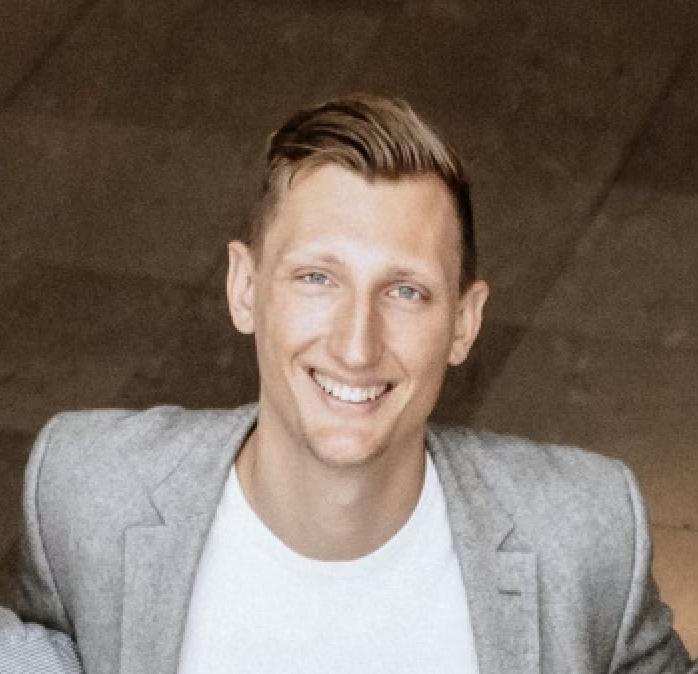Are you among those who think their full-time job has extinguished their creative spark? Do you miss doing things out of passion?
If that is so, you’re not the only one feeling this way. In fact, studies have shown that a majority of employees misses passion in their jobs.
While pursuing a full-time career, many people experience burnout because they cannot give time to what brings them joy. Either they are discouraged from actively pursuing their creative interests, or they are not confident enough to believe they can excel at what they do.
But having a career and a creative interest are not mutually exclusive!
EY Parthenon Consultant by day, author by night
Alina Lindermuth is a full-time healthcare strategy consultant at EY Parthenon from Vienna, and has recently published her own novel. The two things don’t seem to go hand in hand, right? Strategy consultants are supposed to have a scientific approach to everything – how did writing fiction fit into the frame?
Let’s find that out and see how you can also keep that creative spark alive.

Rule 1: Don’t Give Up
Cultivating creativity often requires more than enjoyment. It requires focus and dedication, along with consistently practicing your craft. Alina was writing for herself well before she published her novel, and it was something that she didn’t give up on.
Rule 2: Have a Structured Approach Towards Your Passion
One way that Alina got about writing her novel was to approach it in a structured manner. Skills learned at your job can sometimes come in handy!
She mentions using an Excel sheet to plan characters and events for her story.
But how did she get the time to write a full novel?
Alina says her creative process is at its peak during morning hours – which of course clashed with her working hours. She admits that her work would leave her drained, so writing in the evening was also not an easy task. Passion, however, paves its own ways. Alina started devoting her weekends to her book.
Rule 3: Share Your Creative Work with Others
The alienation surrounding discussing one’s interest is not an unfounded fear. It holds many professionals back from exploring their interests and telling others about it. Alina mentions that how she was really shy in the beginning about her writing, but her colleagues actually admired her once she told them about her book.
Rule 4: It’s Okay to Sometime Feel Lonely
Everyone around you has hobbies. You must realize that your creative endeavour might be what Alina calls an “intense hobby”. This can be something that you enjoy but often requires a lot of work to make something worthwhile out of it.
You might feel lonely in this whole process. But that’s a small price you pay for the immense fulfilment you get once you are done with your creative project!
Rule 5: The Two Sides of Our Life May Sometimes Overlap
The creative approach that Alina took towards writing her novel helped her see aspects of her work differently. Her approach toward solution building during her full-time work became fluid thanks to her creative writing. Instead of taking a straightforward way, Alina feels that she came up with novel approaches to problem-solving.
On the other side, she got the idea for next book through her consulting job. Her upcoming novel is about healthcare workers. She feels that the plight of care workers is underrepresented in art.
Turns out, pursuing your creative interests parallel to your full-time job can actually help both sides of your life.
Your creativity can go with your full-time job. Alina is already working on her third book.
Being a career professional and having a full-time job should not have to be a death sentence for your creativity. As evidenced by Alina’s story, fostering your creativity can actually help you perform better at your job and provide a sense of fulfillment. Your hobbies cannot be judged by the benchmark of a career and that makes them essential to a complete life.
Key takeaways
Consistency, dedication, and focus are the key takeaways from Alina’s interview. If you believe your creative process is essential to your well-being while working a full-time job, then there is nothing that can stop you from mastering your craft.
Tips on how to manage your creativity with a full-time job:
If you are struggling to give quality time to your creativity, here are a few tips that can help you:
- Plan your annual leaves or mandatory holidays around your interests, so you can focus on them fully for a time.
- Set aside time every day where you only work on your creative process, even if it is an hour or less.
- Structure or plan in advance what you want to focus on with regard to your creative process. If you love to paint, you can try to master something that you haven’t tried before.
- Find like-minded people around you who manage their hobbies with their full-time jobs. Having a support community works wonders, and you can actually pick up more useful tips from seasoned professionals.
- It is important to take a break. Your creative process is a source of happiness, not added stress. If you feel that you have hit a block, it is okay to take a break.
Listen to the full conversation with Alina on our podcast:


